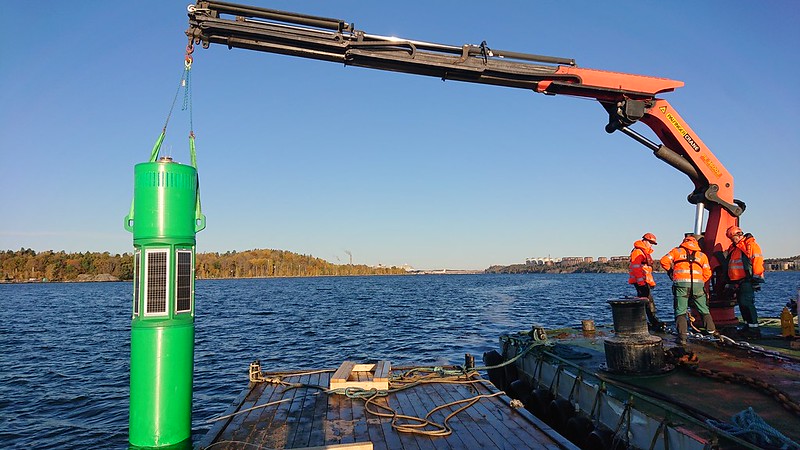A unique solar-powered smart buoy is now being tested in the Stockholm fairway. As part of the Intelligent Sea EU project, Ports of Stockholm is testing smart navigational markers, among other things for improved efficiency of service and maintenance. The navigational markers will be more sustainable and also withstand severe icy weather conditions.

During the autumn a new solar-powered smart buoy was introduced into the Stockholm fairway. This is the fifth smart navigational marker in a series, and the last to be tested by Ports of Stockholm as part of the Intelligent Sea EU project. Finnish company Arctia-Meritaito is running the project together with Ports of Stockholm and the Port of Naantali as project partners.
Arctia-Meritaito has developed the fairway buoy, and similar buoys have previously been installed at Stockholm Norvik Port. The difference is that the buoy in the Stockholm fairway has been equipped with solar cells for charging the buoy's batteries.
“We hope that the solar cells, in combination with the fact that the buoy is remotely controlled using 4G, will make service and maintenance more efficient. We are also hoping for a cold, hard winter to test the buoy in severe weather conditions,” says Fredrik Lindstål, Chair of the Board at Ports of Stockholm.
Together with its twin at the Port of Naantali, the buoy is currently unique. Its construction and technology are designed to withstand severe weather conditions. The solar cells are integrated into the buoy and the batteries are specially constructed to be resilient to icy winters. The rechargeable batteries are more sustainable, with an operational lifetime of between 7-10 years, in comparison to the current normal one-year lifetime. The batteries therefore need to be replaced much less frequently. The buoy is equipped for remote monitoring of its batteries, solar panel, light signal and position. This makes both service and maintenance more efficient, as the number of times a service vessel needs to be sent out are fewer, which also reduces emissions.
The buoy is 10 metres tall, with 3.5 metres visible above the water surface. It measures 80 centimetres in diameter and is equipped with an LED lamp. A ten metre-long cable chain and seven tonne concrete attachment ensures that the buoy is securely anchored on the sea bed.
The EU Intelligent Sea Project runs from 2018 until 2022. The project is funded by an EU grant from the Connecting Europe Facility (CEF) programme.
Additional information about the Port of Stockholm at CruiseMapper